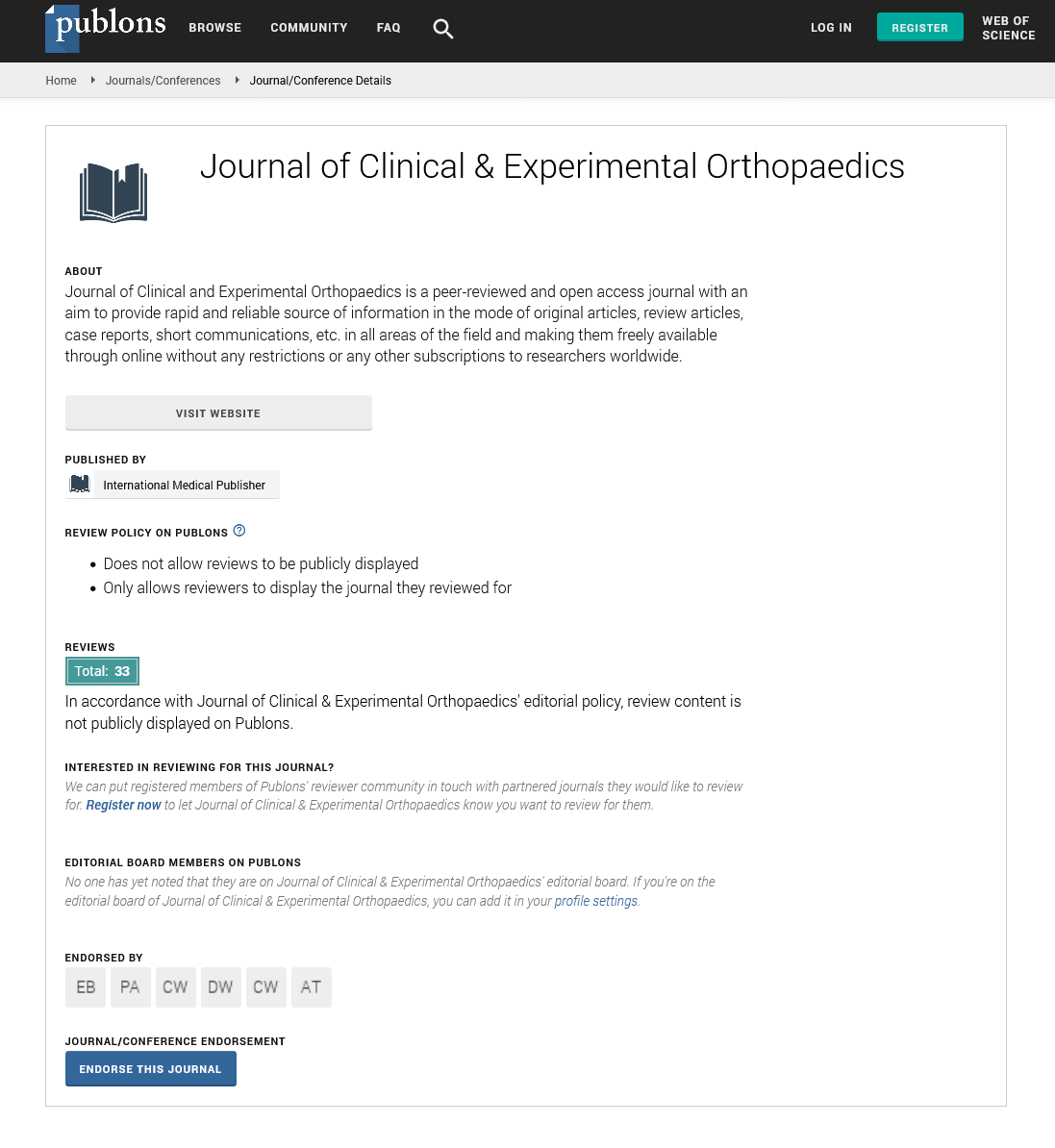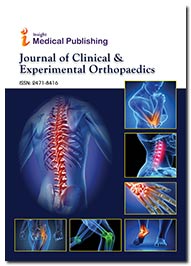Abstract
Sport-Related Concussion and Neuropsychological Testing: Shaken or Stirred?
American Medical Society for Sports Medicine(AMSSM) defined Concussion “as a traumatically induced transient disturbance of brain function and involves a complex pathophysiological process, which is a subset of Mild Traumatic Brain Injury (MTBI) and is generally selflimited and at the less-severe end of the brain injury spectrum [1].” Prevalence of Sport-Related Concussion (SRC) varies depending upon type of sport, but is eventually occurring in all types of sport especially more so in football, soccer, and baseball [2]. History and Development The earliest understanding of SRC as an acceleration-deceleration injury was explained by using the model of Newtonian Physics to objectively measure the forces applied to the brain during accelerationdeceleration injuries, and to predict functional outcome, such as neurocognitive status, recovery curves, and return to play from the obtained data [3,4]. From the bench to the bedside, the evidence points out both basic science and clinical controversies existed in SRC where the former included labeling the condition as a ‘functional brain injury’ rather than structural or pathological brain damage, while the latter involved issues with definition, injury severity grading, classification, and understanding of clinical symptoms and motor/convulsive squeal [5]. Evaluation of Concussion Evaluation of symptom severity, neuro cognitive function and postural stability forms a comprehensive part of assessment of sportspersons with concussion [6]. However, a plethora of diagnostic measures were reported in literature namely; structural imaging (computerized tomography, magnetic resonance imaging, diffusion tensor imaging), functional imaging (single photon emission computerized tomography, positron emission tomography, functional magnetic resonance imaging), spectroscopy (magnetic resonance spectroscopy, near infrared spectroscopy), balance testing (Balance Error Scoring System, Sensory Organization Test, gait testing, virtual reality), electrophysiological tests (electroencephalography, evoked potentials, event related potentials, magneto encephalography, heart rate variability), genetics (apolipoprotein E4, channelopathies) and blood markers (S100, neuron-specific enolase, cleaved Tau protein, glutamate) [7]. Treatment of Concussion Treatments for SRC ranged from rest and removal from sports participation, followed by low level exercise and multimodal physiotherapy, later followed by active rehabilitation during returnto-sport phase [8,9]. Clinical outcomes for SRC included generic and specific outcomes instruments aimed at assessing general health-related quality of life or various concussion symptoms and co morbidities such as headache, migraine, fatigue, mood disturbances, depression, anxiety, and concussion-related symptoms [10]. Uses of Neuropsychological Testing Neuropsychological assessment provides not only an objective method for evaluation of SRC, but also its associated individual-related factors such as age, gender, and history of prior concussion [11]. Neuropsychological findings in SRC include difficulties in attention and concentration, speed of information processing and impaired memory [12]. Neuropsychological testing had evolved from use of paper-andpencil tests, to conducting field tests of balance and much later, to the most widely marketed computer-based test batteries, however the diagnostic implications are far more reliable than from a prognostic viewpoint [13]. Despite the lack of high quality evidence for neuropsychological test methods for use in SRC, many sports medicine physicians, athletic trainers, physical therapists, coaches and athletes use these tests and they are mandated by several professional sports academies and societies’ guidelines [14]. Current practice and education in the field of sports medicine revolves around professionals’ belief in NP testing as a simple to use on-field measurement method [15] Issues with Neuropsychological Testing Baseline neuropsychological screening using Impact test was questioned for its reliability and validity, and was not likely to diminish the risk of SRC, and since there is so much risk associated with premature return to play that the test itself might increase risk in some situations [16]. Recently identified six key issues in sports-related neuropsychological assessment in concussion: “(1) the advantages and disadvantages of different neuropsychological assessment modalities; (2) the evidence for and against the current paradigm of baseline/postinjury testing; (3) the role of psychological factors in the evaluation and management of concussion; (4) advances in the neuropsychological assessment of children; (5) multi-modal assessment paradigms; (6) the role of the neuropsychologist as part of the sports healthcare team and (6) the appropriate administration and interpretation of neuropsychological tests [17].” Final Points AMSSM summarized their stand on NP testing in SRC as follows; “Neuropsychological (NP) tests are an objective measure of brain-behavior relationships and are more sensitive for subtle cognitive impairment than clinical exam. â?¸Most concussions can be managed appropriately without the use of NP testing. â?¸ Computerised Neuropsychological (CNP) testing should be interpreted by healthcare professionals trained and familiar with the type of test and the individual test limitations, including a knowledgeable assessment of the reliable change index, baseline variability and falsepositive and false-negative rates. â?¸ Paper and pencil NP tests can be more comprehensive, test different domains and assess for other conditions which may masquerade as or complicate assessment of concussion. â?¸ NP testing should be used only as part of a comprehensive Journal of Clinical & Experimental Orthopedics ISSN 2471-8416 concussion management strategy and should not be used in isolation. â?¸ The ideal timing, frequency and type of NP testing have not been determined. â?¸ In some cases, properly administered and interpreted NP testing provides an added value to assess cognitive function and recovery in the management of sports concussions. â?¸ It is unknown if use of NP testing in the management of sports concussion helps prevent recurrent concussion, catastrophic injury or long-term complications. â?¸ Comprehensive NP evaluation is helpful in the postconcussion management of athletes with persistent symptoms or complicated courses [1].” American Academy of Clinical Neuropsychology (AACN), American Board of Professional Neuropsychology (ABN), Division 40 (Neuropsychology) of the American Psychological Association (APA), and the National Academy of Neuropsychology (NAN) stated that neuropsychologists should be included among the licensed healthcare professionals authorized to evaluate, clinically manage, and provide return to play clearance for athletes who sustain a SRC [18].” For the Future Quantitative Electroencephalographic (Q-EEG) measurements and assessment of neurocognitive function had been shown to predict an accurate return to sport decision compared to clinical symptoms or field tests [19]. Future research should incorporate such methods in order to establish predictive validity of NP tests in this sports population. “Coming to the answer: yes, NP testing in SRC continues to be stirred by theoretical rationale and practical utility yet shaken by the era evidence-informed sports medicine.
Author(s):
Vaishali Sisodia
Abstract | PDF
Share this

Google scholar citation report
Citations : 161
Journal of Clinical & Experimental Orthopaedics received 161 citations as per google scholar report
Journal of Clinical & Experimental Orthopaedics peer review process verified at publons
Abstracted/Indexed in
- Google Scholar
- China National Knowledge Infrastructure (CNKI)
- Directory of Research Journal Indexing (DRJI)
- WorldCat
- Publons
- Geneva Foundation for Medical Education and Research
- Secret Search Engine Labs
Open Access Journals
- Aquaculture & Veterinary Science
- Chemistry & Chemical Sciences
- Clinical Sciences
- Engineering
- General Science
- Genetics & Molecular Biology
- Health Care & Nursing
- Immunology & Microbiology
- Materials Science
- Mathematics & Physics
- Medical Sciences
- Neurology & Psychiatry
- Oncology & Cancer Science
- Pharmaceutical Sciences


